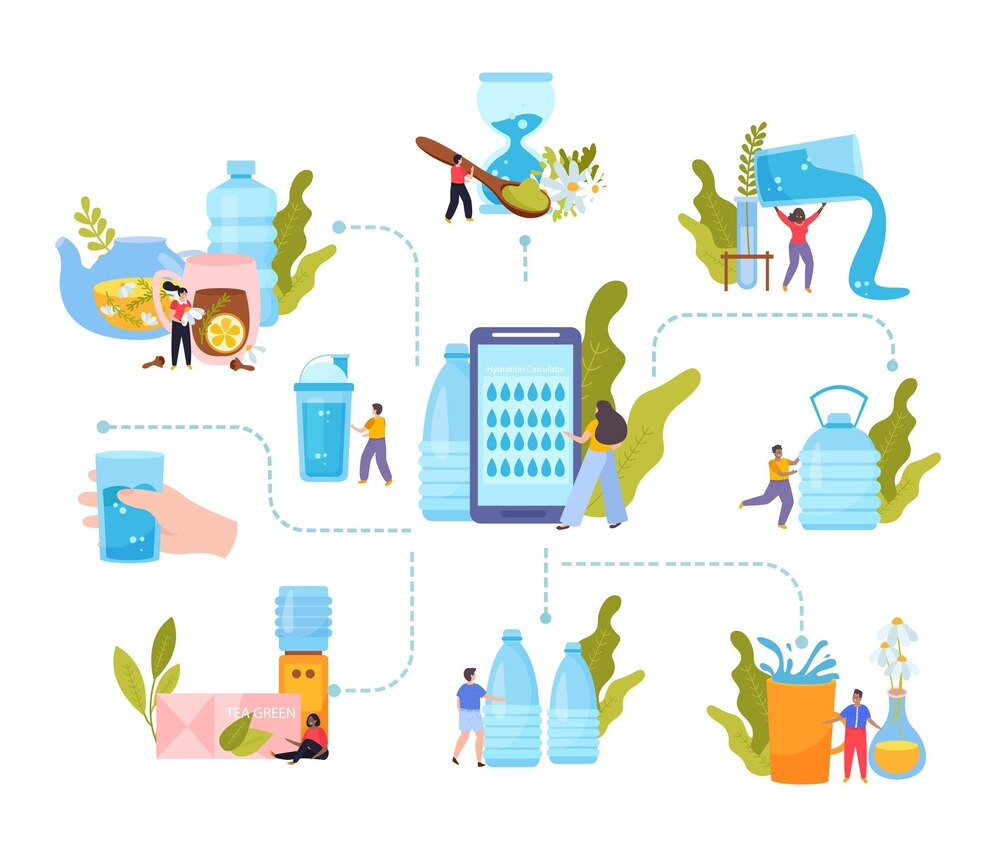
Gone are the days when water was simply filtered and poured into bottles. Plant-based hydration stations have come to revolutionise how we hydrate in sporting venues by using organic materials to filter and infuse water with essential electrolytes. Through these innovative stations, traditional bottled drinks can be avoided as sustainable options with today’s growing demand for eco-friendly solutions. As a result, sportsmen now have an opportunity to choose healthier ways of hydrating while at the same time contributing immensely toward bettering the environment.
The Need for Sustainable Hydration SolutionsSports facilities are increasingly looking for ways to incorporate sustainable practices. This is due to the fact that traditional bottled hydration methods contribute significantly to plastic waste, which poses a great environmental challenge. Huge numbers of single-use plastic bottles get consumed by sports arenas, which worsens the problem since these places attract crowds of fans most of the time.
These factors have led to an increasing number of stadiums adopting more environmentally friendly means of keeping their athletes hydrated, such as plant-based hydration stations that produce zero waste. Enthusiasts concerned about sustainability can support these initiatives and also engage in responsible sports betting with Melbet Uganda, enhancing their sports experience responsibly.
How Plant-Based Hydration Stations WorkPlant-based hydration stations use natural processes and organic materials to purify and enhance water.
- Filtration: It involves using organic materials like bamboo charcoal that ensure contaminants are removed from water, thereby generating clean water.
- Electrolyte Infusion: Cucumbers and mint leaves add minerals necessary for body functions, such as sodium ions, which also improve water’s ability to retain fluidity.
- Sustainability: The use of renewable resources and organic materials minimises environmental impact.
Advanced technology meets natural elements in these stations; hence, they offer an efficient and green response to satisfy your thirst quickly. When combined with these natural methods, it not only enhances purity by eliminating pollutants but also improves nutritional value, making it preferable among athletes or people who may want some liquid refreshment.
Benefits of Hydration Systems Based on PlantsThe numerous advantages of plant-based hydration stations include a dramatic decrease in plastic garbage, better options for healthy drinking, and improvement of the environmental quality of sports facilities. These stations not only make sustainability more attractive, but they also add to the overall look and naturalness of the facility.
Impacts on Health and WellnessThese stations are highly beneficial in terms of health and wellness as they offer clean, naturally enhanced water without artificial additives. Using organic materials such as bamboo charcoal helps remove impurities, while natural infusions from plants like cucumbers and mint contain essential electrolytes.
This makes it a healthier alternative to hydration for athletes as well as spectators, thus promoting improved physical activity and general well-being. Furthermore, these naturally infused waters help people hydrate properly, which is very important for maintaining energy levels during sports events so that they do not fall into dehydration.
- Mavhunga puts DeMbare into Chibuku quarterfinals
- Battle of Zim abandoned
- Funding spurs mothers’ fight against malnutrition
- Funding spurs mothers’ fight against malnutrition
Keep Reading
The environmental benefits derived from plant-based hydration systems are huge. By decreasing the use of single-use plastic bottles, these systems play a part in reducing plastic waste, which is one of the greatest environmental issues. Filtration through bamboo reduces the carbon footprint associated with water provision compared to other methods.
Moreover, most of the time, such station designs are done using sustainable resources, thereby significantly enhancing their eco-friendliness. The reduction in plastic waste benefits wildlife habitats besides keeping the area around sporting events clean and green. This represents an important stride towards an environmentally conscious sports industry by moving away from plastics towards sustainable ways of providing hydration services within game venues.
Implementation ProblemsSeveral challenges are experienced in the implementation of plant-based hydration stations in sports venues.
- Expenses: The initial installation and maintenance costs can be expensive, especially for high-quality organic materials and sophisticated filtration systems.
- Proper Care: Regular maintenance to prevent malfunctioning and ensuring they remain efficient and hygienic entails more staff members and resources.
- Scaling: It is hard to meet the needs of huge crowds during major events by implementing these systems, thus necessitating comprehensive planning and logistics.
Nonetheless, the need for wider adoption and better performance remains since sustainable hydration solutions have their own advantages in spite of these problems.
Case Studies on Successful ImplementationsTo prove their efficacy, various sports facilities have already introduced plant-based hydration stations. One example is when they were put in place by Green Sports Alliance through a partnership with many stadiums, receiving positive comments from players as well as spectators. Apart from reducing plastic waste, this initiative has also provided healthier water consumption habits.
In another case, Japan’s commitment towards sustainability was showcased through the integration of plant-based hydration stations during the Tokyo 2020 Olympics. These instances provide insights into how practicable and advantageous they are, paving the way for similar applications at other sporting venues across the globe.
Sports venues need these types of plant-based hydration stations to promote sustainability. Such stations help reduce environmental impacts while promoting public health by providing an eco-friendly alternative to bottled drinks. This suggests that sustainable hydration needs a better strategy that will ultimately change the course of the sports world once adopted by more arenas locally or internationally.







